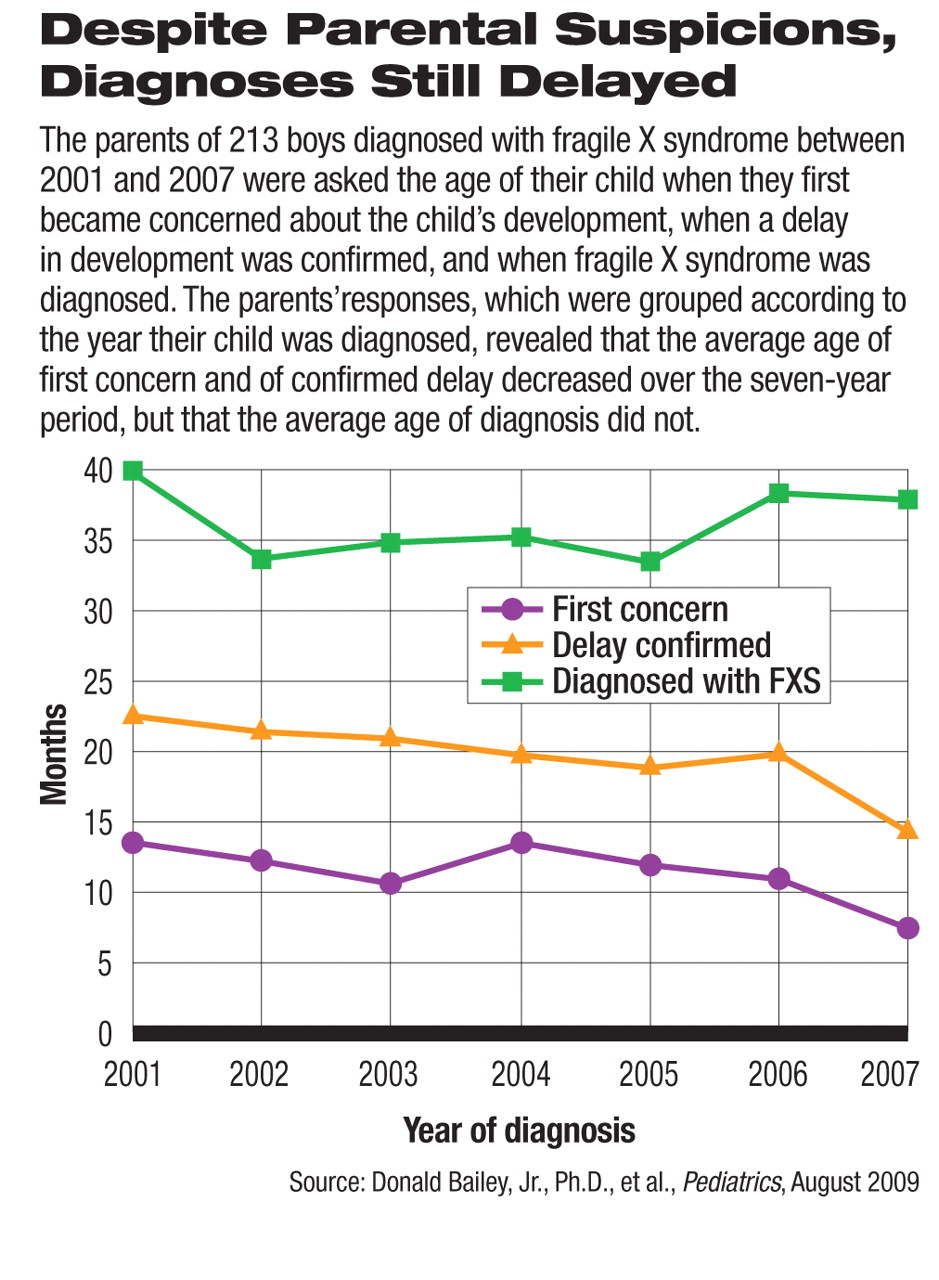At first glance, there is no reason why children with fragile X syndrome, the most common inherited form of intellectual disability, shouldn't be diagnosed early in life.
The gene that is responsible for the syndrome has been identified (Psychiatric News, January 4, 2002). There is a genetic test for the syndrome (Psychiatric News, January 4, 2008). The American Academy of Pediatrics and the National Fragile X Foundation, among others, have been pushing to get children with the syndrome diagnosed early. Furthermore, the parents of fragile X children seem to be aware of their offspring's developmental delays earlier than they used to.
However, the average age of diagnosis today is about 3 years—the same as a few years ago, a new study has found. It was headed by Donald Bailey Jr., Ph.D., a distinguished fellow at the Research Triangle Institute (RTI) International, and reported in the August Pediatrics.
So, what's going on? Bailey and his colleagues suggested in their paper,“ Research shows that pediatricians are aware of fragile X syndrome and support diagnostic testing for children at high risk, but would refer to a specialist instead of ordering a diagnostic test even if they suspected fragile X syndrome. The lag is probably due in part to delayed referral to specialists and in part to the time lag between referral and actual appointment.”
However, not all the tardiness can be blamed on these two factors. This new study, whose subjects all had fragile X syndrome, found that the fragile X diagnostic test ordered for them was requested by pediatricians or family doctors 23 percent of the time. (The test was initiated in other instances by neurologists, geneticists, psychologists, speech-language therapists, or the families themselves.)
But why all the fuss about getting fragile X children diagnosed early? All that they need to be eligible for early-intervention programs is a diagnosis of a developmental delay, not a formal diagnosis of fragile X. There are several reasons, Bailey explained to Psychiatric News. It helps the parents of a fragile X child understand why he or she has developmental and behavioral problems. It also lets them know that if they have more children, those children may have fragile X as well. Indeed, a fourth of the parents who participated in this study already had a second child with the syndrome before they knew that their first child had it, Bailey said.
Even though nonpsychiatrist specialists are usually the ones who order fragile X diagnostic tests for developmentally delayed children, psychiatrists still have a role to play in the treatment of fragile X children. Bailey said,“ Children with fragile X are often put on multiple medications to control behavior problems, attention problems, hyperactivity, aggression, seizures, anxiety, or other complications.” Psychiatrists may also have a role to play in the diagnosis and treatment of depression in the mothers of fragile X children, Bailey noted, since the mothers of children with disabilities often suffer from depression, he and his colleagues found in previous research.
The study was funded by the Centers for Disease Control and Prevention and the Association for Prevention Teaching and Research.
An abstract of “No Change in the Age of Diagnosis for Fragile X Syndrome: Findings From a National Parent Survey” is posted at<http://pediatrics.aappublications.org> under the August issue. ▪

